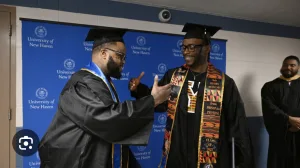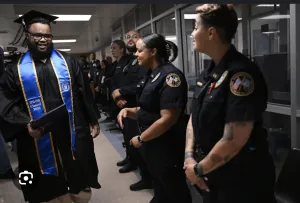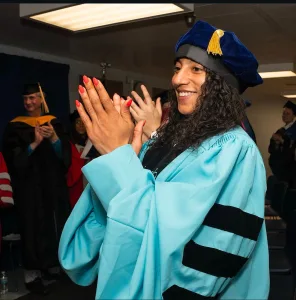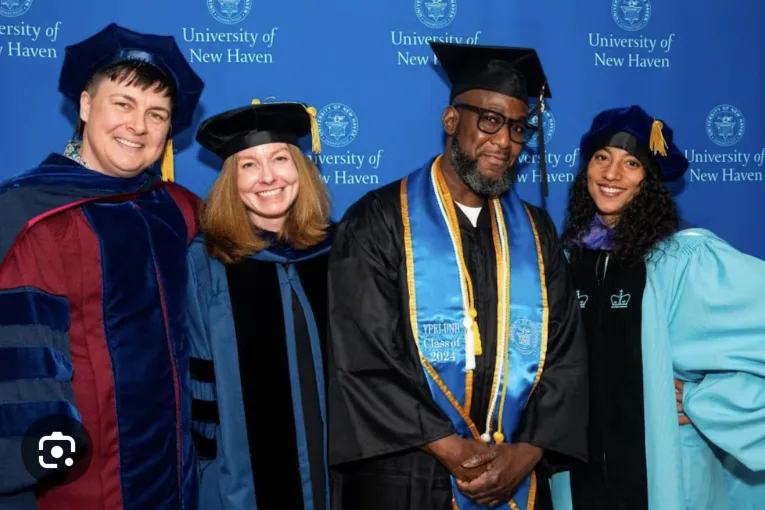
There are several hundred Valley State Prison (VSP) residents in California attending in-person college classes and pursuing AA, BA, and MA degrees using Wi-Fi-enabled laptops that operate using a Canvas shell. On the other side of the country, the Connecticut residents at MacDougal-Walker Correctional Institute (MWCI) pursuing AA and BA degrees conferred by University of New Haven, do so without the digital tools, research resources, or program capacity we enjoy; yet, there’s is a more diverse, equitable, and normalized culture of opportunity and achievement than the Golden State’s otherwise acclaimed and much-heralded higher education apparatus. Consider this a bit of sunlight brought to a shadowed bacterial infection in need of deep cleaning. It takes an eyewitness to debunk the mythologies of state power, and those a r m e d with ethics and a megaphone must act as honest brokers of truth, and convey that messaging, even if that report backhands their respective perches of comfort. The photo above presents a graduated Black scholar with Honors distinction, whose name is prevented from being published, thereby preventing him, his family, and alumni from celebrating a deserving member of the University of New Haven student body – a prohibition orchestrated by the same prison that, though the Governor attends these ceremonies, hasn’t allowed a resident to take photos with family members during contact visits in over a decade. Varying cloud formations of civil death hover over MWCI in contradictory fashion. These penal tactics headbutt the otherwise forward-leaning manner in which the academic achievements of residents are celebrated most honorably by those who travel into a maximum security facility to teach folks who likely would never have engagement with Yale faculty otherwise, but for being in prison.
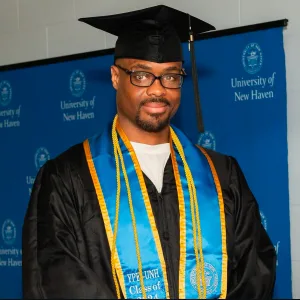
The next picture reflects another unnamed Black scholar with Honors distinction standing next to Elizabeth Hinton, the acclaimed author, historian, Professor of History, African American Studies, and Law at Yale University and Yale Law School, and one of those committed educators who travels into MWCI to teach Yale Prison Education Initiative (YPEI) students. The images that follow color in a scene of celebration, solidarity, equity, and the centered humanity too often ignored here in California. Take note of what is happening in these images that mirrors what you’d expect to find on campus anywhere in free America, and then try to find evidence of the violent and off-the-hook prison these moments were captured in. Consider what it took for these men to climb into that room at all. Ponder the totality of braided funding, staffing, and love that built that room. The clean step-and-repeats, caps, gowns, tassels with year-appropriate “2023” designations, school-colored sashes with year-appropriate custom-embroidered “YPEI-UNH Class of 2023” designations, honors cords, culturally relevant “from Prison to Promise” sashes, “University of New Haven” embossed diploma slip covers, the attendance of graduates’ families, degree-conferring University faculty in attendance wearing full regalia, graduates speaking from the podium, candid emotion, peer-supported affirmations, and the concerted effort to capture, memorialize, and preserve these fleeting and rarely-seen moments of transformation, round out a totality of praiseworthy effort and action-work by those who will never seek it, but deserve our collective gratitude. On behalf of those who must remain nameless, but who are nonetheless staring back at all of us like Elizabeth Alexander’s Trayvon Generation, and ridiculously prevented from conveying those most basic expressions of appreciation and displays of solidarity—deemed “over-familiar” by the violence-structured leviathan—please, receive this as well-deserved thanks sent via surrogacy.
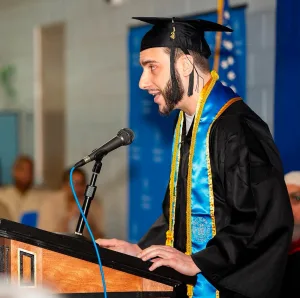
Hinton told the Everyday Injustice podcast, “It is vitally important, and in fact, it is our moral obligation—those of us who research the carceral state—to also then, not only amplify the voices of people who have experienced the carceral state first hand in our work, and support their own self-activity and movement building, but then to call on our Universities to support the expansion of educational opportunities for people who are incarcerated.” Before sitting on the YPEI executive committee, she opted to leave her tenured faculty position at Harvard partly due to the school’s refusal to provide college coursework to incarcerated college students in the area. A lot of people speak, write, opine, and posture as if concerned about higher education as a human right, for its own sake—fewer activate to that end. I don’t know another human, let alone a Black female advocating in the social justice space who worked her ass off to get into Harvard, and published a seminal work with the Harvard University Press, who gave up her tenured post in solidarity with a cause she believed in. Though there be esoteric debates in the academy about abolishing prisons as the only way to redress the structural violence and time-extraction methods of the carceral state, in 2000, Angela Y. Davis cited a distinction she made clear to Dylan Rodriguez in an interview for Social Justice, regarding her belief that there is not “a strict dividing line between reform and abolition,” and that, for example, “it would be utterly absurd for a radical prison activist to refuse to support the demand for better health care inside Valley State… under the pretext that such reforms would make the prison a more viable institution.” She then went on to cite “education” as one way to resist how “prisons violate prisoners’ human rights,” how reforms can become “integrated into an abolitionist context that elaborates specific decarceration strategies, and helps to… shift resources from punishment.”
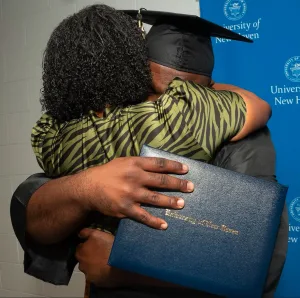
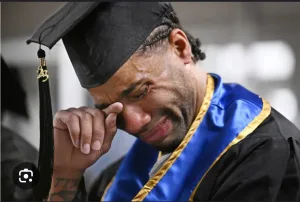
When I recently walked at my graduation to receive multiple degrees, the college program coordinator had only posted one of my degrees online, though I held three in my hands. They came to me as flimsy pieces of paper—no embossed slip cover—and my three honors distinctions were indicated by the use of a cheesy sticker. Really. It felt like a summer camp award somebody made at the YMCA when I was ten years old. There were no college faculty instructors from any program in attendance—not one. The administrators who did show up were the prison staff, who had to be in the room to organize the poorly-conceived event anyhow, and not the folks from the college programs conferring the degrees. Think about that. Look at these MWCI images and contrast that with what I experienced. I stood in a gymnasium with no background visuals reflecting the school conferring my degrees, and wore no colored sash of any kind. Nobody here has ever seen an embroidered anything – ever. My honors cord was mailed here by the school, but the prison lost it; thus, my photo doesn’t memorialize the hallmarks of my achievement, or the moment of its celebration. All I have are those stickers. Don’t get me started on the tassels either—normalization means nothing here. If it did, we’d have had our valedictorian graduates speaking from the podium about achievement, undergrads seated in the audience so that our younger peers might imprint upon our success, and formerly incarcerated now-paroled program students speaking about post-carceral possibility for all of us to imprint upon. California credits itself for variety and volume, but nobody here vouches for the quality. The communities we build here are formed despite of prison. Word to Angel Sanchez. Nearly everyone graduating in the YPEI photos appears Black, Puerto Rican, or a member of the ethnic variety pack. Here, Black students comprise a very small minority of the college student body. To change that, we need to celebrate success.
